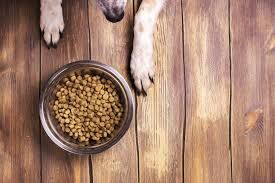
Owning pets can lead to various food choices for your furry friends to enjoy eating daily. Grain-free diets have become quite popular among owners lately. However, there are still some doubts about whether they truly offer the best benefits for our pets' health and well-being. This article examines the trend of grain diets in pet nutrition and discusses important factors for pet owners to consider before making dietary decisions for their furry companions.
Exploring the Concept of Grain-Free Eating
Diets without grains do not include wheat or corn. Instead, potatoes or lentils for carbohydrates should be used to cater to pets with potential grain allergy concerns that aim to enhance their health by supporting digestion and coat condition.
Grain allergies are not very common in pets; most pets handle grains well. Allergies are often due to meat proteins or grains, so owners must know their pets' dietary requirements before making big changes. You can buy premium grain-free cat food online or at a store.
The Significance of Maintaining a Healthy Diet Balance
Ensuring that your pet's diet is nutritionally balanced is essential for their well-being and health needs to be met fully by considering proteins, fats, carbohydrates, vitamins, and minerals. Although grain-free options can benefit some pets, they do not guarantee a rounded diet, so it's important to consider all the necessary nutrients.
When considering a grain diet option for your pet's nutrition plan, it's important to review the ingredients list to confirm the presence of top-notch protein sources and a well-rounded blend of essential nutrients necessary for their well-being and vitality.
Health Issues to Watch Out For
Grain-free diets have come under scrutiny lately because of their connection to dilated DCMa (a heart condition that affects dogs). Studies suggest there might be a link between grain diets and this heart condition, particularly those rich in legumes and potatoes.
Pet caretakers should stay watchful and well-informed regarding research findings. This is especially important as we await proof; it is advisable to watch for any signs in pets who consume a grain-free diet. Regular visits to the vet can aid in detecting any problems at a stage.
Tailoring Diets To Meet the Unique Needs of Each Pet
Each pet has its characteristics and specific dietary requirements to consider, such as breed type or age range, activity levels, and any current health issues—all of which greatly impact the most suitable food choice for them; what could be perfect for one pet may not necessarily be the best fit for another furry friend.
Seeking advice from a vet can assist in customizing a diet that suits a pet's requirements, whether it involves determining the suitability of a grain diet or making other dietary modifications as needed to ensure optimal nutrition tailored to the individual needs of pets.
Thinking About the Price and Convenience Aspect
Grain-free pet foods tend to be more expensive than other food options, so pet parents need to consider the advantages of these diets' cost and convenience when making decisions about their pet's nutrition, taking into account factors like budget limitations and product availability.
Considering choices could provide comparable advantages without the extra expense involved in it all. Having a conversation with a vet might offer alternative answers to ensure the food quality is upheld while also taking into account budget constraints.
Assessing Marketing Statements
Marketing frequently influences decisions about food selection. Brands advertise grain diets as better options by highlighting advantages that may lack strong scientific backing. It's important to assess assertions with a good mindset.
Understanding the information on food labels and ingredients can empower parents to make well-informed decisions when choosing what to feed their furry friends. Instead of just depending on marketing tactics alone, seeking guidance from research and experts to make sound choices regarding pet nutrition is crucial.
Crafting Well-Thought-Out Choices

When it comes to deciding what to feed your pet, it's essential to consider a rounded perspective. Pet guardians should factor in their friend's requirements, seek advice from experts, and carefully assess the information at hand. While grain-free food options may offer advantages for pets, they aren't always the right choice for everyone.
Pet owners should rely on research and guidance from experts to ensure they give their companions the best care possible for their well-being.
In Summary
Grain-free diets have gained popularity in nutrition. However, they may not be suitable for all pets. Pet owners must recognize their pets' requirements and carefully assess options while taking into account potential health issues. By staying informed and seeking advice from veterinarians when needed, pet owners can make decisions that prioritize the wellness of their animal companions by buying grain-free cat food or other grain-free options for other pets.



Post a comment as Guest
Report
Watch this discussion.
(0) comments
We welcome your comments
Log In
Post a comment as Guest
Keep it Clean. Please avoid obscene, vulgar, lewd, racist or sexually-oriented language.
PLEASE TURN OFF YOUR CAPS LOCK.
Don't Threaten. Threats of harming another person will not be tolerated.
Be Truthful. Don't knowingly lie about anyone or anything.
Be Nice. No racism, sexism or any sort of -ism that is degrading to another person.
Be Proactive. Use the 'Report' link on each comment to let us know of abusive posts.
Share with Us. We'd love to hear eyewitness accounts, the history behind an article.